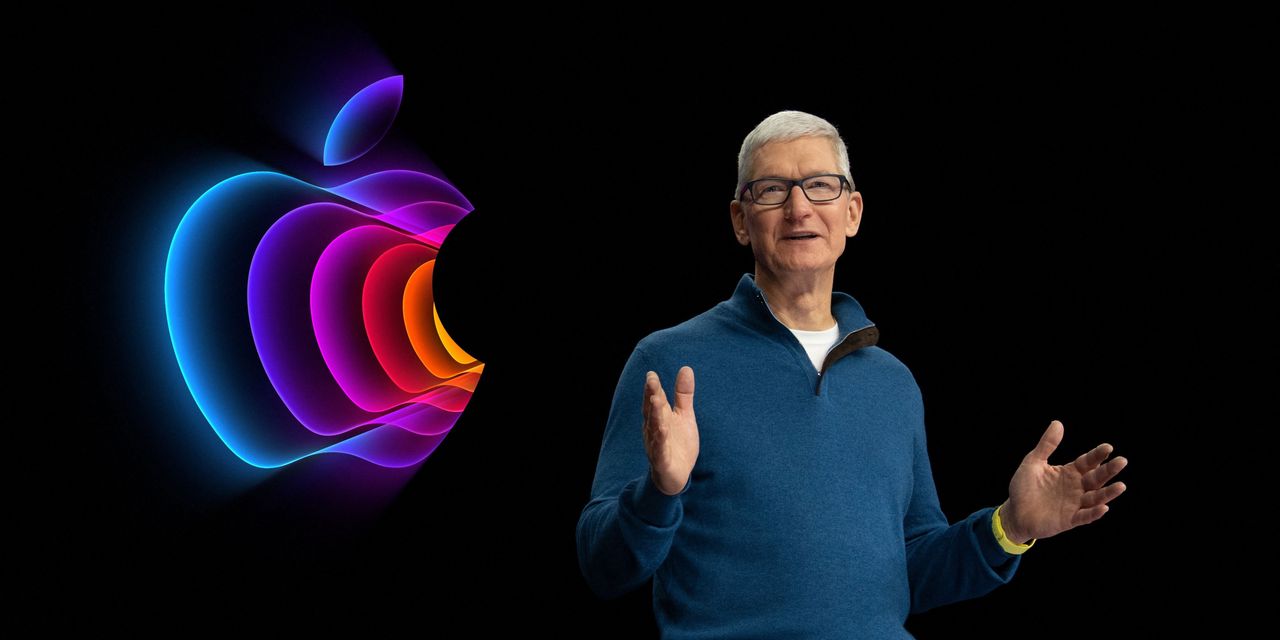Wedbush Securities analyst Dan Ives raised eyebrows this week by declaring it a “no-brainer” for Apple to acquire ESPN from The Walt Disney Co. at a potential price of $50 billion.
The tech giant made its biggest move into live sports so far with a 10-year, $2.5 billion streaming deal with Major League Soccer a year ago, and Lionel Messi makes it look like a smarter decision with every highlight-reel goal on Apple TV+.
Apple and ESPN are “the perfect fit,” Ives told CNBC. “Cupertino is looking to go after live sports content as the golden goose. I believe it’s a matter of when — not if — ESPN and Apple get together.”
Apple would get rights to the NFL, NBA, WNBA, MLB, NHL, UFC, the PGA Tour, tennis Grand Slams, Formula 1, and college football’s Big 12 and SEC Conferences — plus ESPN’s first two Super Bowls after the 2026 and 2030 seasons.
During ESPN’s 44-year history, corporate ownership has flipped several times between Getty Oil, Texaco, ABC, Capital Cities Communications, RJR Nabisco and The Walt Disney Co. (Disney currently owns 80%, while Hearst owns 20%).
James Andrew Miller, author of “Those Guys Have All The Fun: Inside the World of ESPN,” noted Apple would not even have to buy 100% of ESPN for it to be a “game-changer.”
With a market capitalization of $2.7 trillion, Apple could make ESPN the favorite for every sports property that comes up for bid, including the NBA and the College Football Playoff.
“Apple has enough change in their couch cushions to fundamentally alter the media rights landscape,” Miller told Front Office Sports.
Not so fast
The union of Apple’s 2 billion worldwide active devices with ESPN’s audience of 105 million monthly unique digital visitors and 25 million ESPN+ subscribers would no doubt be a powerful business combination.
Amazon Prime Video can testify to the drawing power of live sports. Prime’s debut stream of “Thursday Night Football” last season generated a record number of sign-ups over a three-hour period. Amazon has a growing relationship with the WNBA, already has its hooks into the NBA via a streaming deal in Brazil, and also plans to launch a standalone sports app.
But Apple is choosy when it comes to acquisitions.
It’s been nearly a decade since its biggest deal: the $3 billion purchase of Beats in 2014. Apple has the capital reserves of a small country, but it’s still a big leap to the upwards of $50 billion for ESPN.
Then there’s ESPN’s long-running role as Disney’s cash cow: Over the decades, Disney chief executive officer Bob Iger has used the billions generated by ESPN affiliates and advertising fees to finance his acquisitions of Marvel, Pixar, and Lucasfilm.
The sports-loving Iger has long resisted calls from activist investors like Daniel Loeb to spin off ESPN. He recently named the Jimmy Pitaro-led ESPN one of three corporate “pillars” of Disney, along with theme parks and entertainment.
Even with ESPN’s economic model under pressure from cord-cutting, it’s uncertain whether Iger would want to turn off that revenue spigot. Since ESPN will air its Super Bowls and the NBA Finals on ABC, its sister broadcast network would likely have to be included in a deal.
Finally, there’s the mystery of what Apple truly wants out of sports.
Media observers who believe that Apple wants to “recreate” ESPN could be way off base, according to Patrick Crakes, a former Fox Sports executive turned media consultant.
Apple could have landed the rights to the struggling Pac-12 conference for a song. Instead, they walked away, he noted. The NFL’s “Sunday Ticket” rights were ultimately landed up by Google’s YouTube TV, and Apple’s MLB streaming deal is just for Friday night games.
“Apple is a device manufacturing company. The media picture has to fit into that; not vice versa. So they’re being cautious,” Crakes said.
Under pressure
The idea of giant streamers quickly boosting their live sports rights by acquiring legacy competitors is gaining “saliency” among investment strategists, according to Crakes, but he doesn’t think we’re quite there yet.
“You’d get a lot of assets that you probably don’t need. But it’s a good problem to have because [these companies] are still profitable,” said Crakes. “If you’re Apple or Amazon, and you really believe that media is accretive to your long-term value or supports some core element of your long-term value, then you do it.”
But some streamers are finding out the hard way that sports content isn’t the attraction they thought it was. Despite the success of Netflix’s “Formula 1: Drive to Survive,” other sports documentaries have flopped.
“Streamers should invest in actual, live sporting events, not unscripted, sports-adjacent programming,” wrote The Ankler.
Changing TV habits and a stuttering economy are putting pressure on Disney and its crown jewel.
With cord-cutting slashing ESPN’s footprint to 73 million homes from a high of 100 million, Iger’s open to selling an equity stake in ESPN to a “strategic partner,” as well as offloading the rest of Disney’s linear networks, including ABC. Verizon has thrown its hat into the ring as a potential partner, according to The Information.
Iger recently brought back two top former executives, Kevin Mayer and Tom Staggs, to help evaluate potential investors, which could include rights partners like the NFL, NBA, and MLB.
Disney also overcame its decade-long aversion to sports betting by striking a 10-year, $2 billion deal with Penn Entertainment to rename Barstool Sportsbook as “ESPN Bet.”
Apple wouldn’t be the first outsider to see sports media as a ripe plum to be picked.
DraftKings explored an acquisition of Bleacher Report from Turner Sports in 2019. It didn’t happen. But who knows if Warner Bros. Discovery Sports would welcome a similar overture today. As cost-cutting boss David Zaslav warned: “We don’t have to have the NBA.”
Similarly, Disney investors might welcome an Apple overture to the Happiest Place on Earth, but one sports media expert believes that’s more of a “long-term” play.
“I think the Apples and Amazons are going to try to build momentum by getting their own properties, their own rights, then eventually look to acquire the linear networks to match.”
Kicking the door down
In 1993, Fox was dying to break into sports TV, but the brash network behind shows like “Married with Children” and “When Animals Attack” still wasn’t taken completely seriously.
So Australian billionaire Rupert Murdoch got creative. He swooped in and stole the NFL’s NFC TV package from incumbent CBS Sports with an audacious $1.6 billion, four-year bid.
Did Fox overpay? Yes. But Murdoch knew he either had to go big or go home — and his decision changed the sports TV landscape forever.
Fast-forward 30 years, and most national sports rights are tied up for the next decade by linear networks. The NFL’s rights are confirmed through 2033. The NBA’s about to tip off billion-dollar negotiations that could take its rights off the table until the 2030s and beyond. MLB and the NHL’s rights are spoken for until 2028.
Like Fox back in the day, leagues and teams use streamers as pawns to squeeze more money out of networks — and like Fox, it may be time for streamers to get aggressive if they’re serious about dominating live sports rights.
Rather than waiting years for the chance to bid on rights, streamers could just buy the legacy media companies that control them, and inherit their rights.
“That is really the only way new entrants have gotten into the sports business for the last 40 years or so,” warned one veteran sports TV executive. “You have to kick the door down.”
Read the original article on FrontOfficeSports.com.
For more on how sports impacts business and culture, subscribe to the Front Office Sports Today podcast.
Read the full article here













